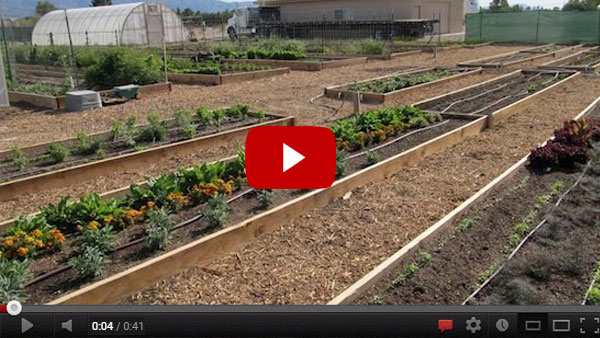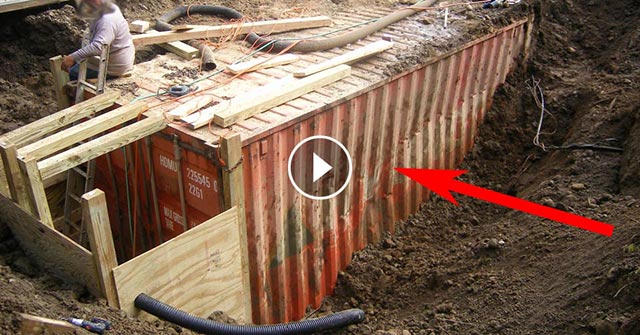Click Here To Join Our Telegram Channel for FREE daily tutorials!

One of the biggest threats we face today could be financial collapse. It seems that people everywhere are just waiting for the one card to fall that’s holding up the whole house of cards. When that happens, it won’t be pretty.
In such an instance, the money in your pocket could become essentially worthless. Hyperinflation will kick in and the book value of the dollar will plummet. People and businesses won’t be willing to accept dollars as payment, simply because the dollar will be devaluing so rapidly. We will end up returning to a barter system for a lot of everyday personal commerce.
What’s interesting is that these skills can come in handy even when things are going well. A little strategy is always a good thing.
Various disasters could render money essentially useless. If the internet or power grid went down, most people’s money will be trapped in the bank’s computer. They might not be able to access it for months. In that case, they’ll be seeking what they can trade so that they can feed their families.
A lot of people are talking about stockpiling goods to use for bartering when that time comes. That’s a good idea — one that could prove quite profitable. The best barter goods are (sadly) said to be those that feed people’s vices; specifically alcohol and cigarettes. But you must also be aware that hoarding of any kind could make you a target of thieves or looters.
Anything that is needed for survival will probably be popular as barter goods. It’s interesting how priorities change. Medical supplies, food, tools and other basics of survival become more important. You can’t eat gold, antiques, collectibles and so on, so these things would lose their immediate value. People would have more important things to focus on.
When Argentina went through their financial collapse, food became one of the top items for bartering.
That’s not all you can barter, though. Since a financial collapse is always accompanied by at least a partial collapse of society, there are many skills which can be bartered, as well. With the difficulty in getting these services from normal channels, people will be grateful to find others that can do them.
When you go to visit a doctor, you expect to pay him for his time. Why is that? It’s because that doctor knows things that you don’t. They’ve invested time and money in learning their profession. So, you aren’t just paying them for their time, you’re paying them for their knowledge, as well. If you were only paying them for their time, you’d be paying them the same rate that you pay someone to cut your lawn.
What makes the difference, in that case, is the knowledge that the doctor has. His time is more valuable because of that knowledge. Likewise, in any crisis situation, your knowledge is valuable. Don’t let people treat you as if it isn’t. If they don’t want to make a trade that is beneficial to you, you can always walk away. They need you more than you need them.
Skills to Trade
With that said, the next question is: What marketable survival skills do you have? Let’s start with those, and then we’ll look at some others.
1. Water purification – Most people don’t have the slightest idea of how to purify water, other than you can purify it by boiling it. They don’t even know how long to boil it.
2. Alternative cooking methods – Take away electricity and most people don’t have much of an idea of how to cook. Even obvious things, like using their barbecue grill might not occur to them. More exotic methods, such as solar ovens, are way beyond their understanding.
3. Fire starting – Yes, people will have problems starting fires. Unless someone is a smoker or has a fireplace, there’s a good chance they won’t have matches or a lighter.
4. Making bio-fuel – If you have the capability, you might just be able to sell any excess you have.
5. Gardening – Many people have vegetable gardens so that they can supply their family with food when things fall apart. Your neighbors might look enviously at that garden, especially when they get hungry. Teach them how to start their own garden, supplying the seeds that they’ll need to get going.
6. Animal husbandry – Are you raising chickens or goats? Just like your vegetable garden, those might become the focus of neighborhood attention. You can help your neighbors start their own chicken coop, perhaps seeding a few chicks to them.
7. Home defense – If things get bad, you might need to organize your neighborhood for mutual self-defense. As the leader and planner of that effort, your neighbors should offer you something in return.There are probably many other survival skills you have, but they might be more specific to surviving in the wilderness, rather than surviving in an urban situation. You probably won’t be able to barter those as well, unless you offer classes to your neighbors.
There are a whole host of other skills which could be bartered, as well. Pretty much anything that is necessary for survival, which people are accustomed to getting from society, will be in demand. In addition, any of the trades will always be in demand, just as they are now. You might know some of these skills, but not use them as your profession. But then, if your profession dries up from the crisis, these skills might be what you need to provide for your family.
8. Medical services – Medical services will always be in demand; in a crisis, they are often overloaded. You have to be careful with this one, as there are some legal liability issues associated with it. However, anyone who knows basic wound treatment and first aid can do that, even if they aren’t certified. If people have a problem getting to medical help, the ability to take care of a wound may save someone’s life. That’s worth a lot.
9. Midwife – If medical services are overloaded or hard to get to, then the age-old profession of the midwife will be needed. Once again, just like any other medical service, you have to be careful about liability; as you could be held liable for anything that goes wrong.
10. Psychology or counseling – Many people will have trouble dealing with the problems that they are facing and need help adjusting to them. Being able to counsel those people and help them come to grips with post-crisis life will be valuable.
11. Home repair (of all sorts) – Many disasters cause damage to homes. As those homes are necessary to help people survive, being able to make repairs can be very profitable.
12.Mechanics – We will always need mechanics to keep our cars running, as long as there is a gas to run them. This is truer today than in the past because less people know how to do it themselves.
13. Small engine repair – Strange as it sounds, just because someone can repair a car, doesn’t mean that they can repair a lawnmower or generator. In a crisis situation we will probably be depending upon these devices even more than normal; increasing the need for this skill.
14. Appliance repair – With people having less money, they won’t be able to just run out and buy a new washing machine if theirs breaks. Having it repaired would be much cheaper. This may even apply to small appliances if merchandise starts becoming scarce.
15. Gunsmithing – When people get hungry and desperate, there’s no telling what they will do. People who have guns may not have the ability to fix them themselves.
16. Clergy – More than half of the counseling done in this country is done by clergy. That won’t become any less in the aftermath of a crisis. Their services will also be needed for helping with weddings and funerals.
There are probably some other skills, such as blacksmithing, which should be added to this list. Take time to inventory your own skills and see how they might be useful in the aftermath of a financial crash or other crisis. Don’t limit yourself to only these things; think of anything you know how to do, which might be useful in a survival situation. Many things that we don’t commonly use today will be needed, as people are forced to return to the ways of our ancestors.
If the skills which you are planning on bartering require special materials to do, you should put in a stock of those materials as well. Granted, you probably can’t stock everything, but you can stock the most common things you’d use. That way, you’ll have something to start with.
One of the questions that many preppers have about bartering is that of what to accept in trade for their trade goods or skills. There are several ways of looking at this. Typically, preppers talk about trading their trade goods or skills for things that they don’t have. No matter how thoroughly any of us prepare, we’re going to forget something. If you need that something, then it becomes the most important thing for you to trade for.
Another thing you can trade for is people’s time. Just surviving is going to be a full-time job. You may have trouble coming up with enough time to survive, as well as barter your skills. Well then, barter your skills for other people’s time. In other words, if you have a neighbor that needs drinking water, tell them you’ll purify their water if they haul water from the river for both of you. Or, you’ll help them start their vegetable garden if they’ll pull weeds in yours. That way, you can make better use of the time that you have.
Remember, your time will be more valuable than theirs, simply because you have the needed skills to survive. Be fair to people, but don’t let them take advantage of you either. Your prime concern is taking care of your own family, not theirs.
One last category of things you can barter for is valuables. Eventually, things will return to normal, or a new normal. While a silver tea set may lose its relative value during the crisis, because it isn’t necessary for survival; after the crisis, its value will return. When that happens, you can sell the tea service for a profit.
During World War II, there was a lot of this going on. There were constant shortages in occupied Europe. The priority was given to the German military forces, leaving insufficient food for the population in these countries. Many people dealt with this by going out to the country and trading silver tea sets and other valuables to farmers for hams cheeses, and other foodstuffs.
When the war was over and Europe returned to normal, many of those farmers, who had been poor before the war, ended up quite comfortable. Their black-market bartering of food during the war years made them a tidy profit when it came time to sell those valuables.
By Rich M – www.offthegridnews.com (edit – MFSP)
This Crazy Off Grid Device Literally Makes Drinkable Water From Fresh Air:
According to NASA, the U.S. is expecting a 100-YEAR LONG MEGADROUGHT.
It's already begun. Ask the farmers in California. They know.
Every survivalist knows that water is of critical importance. You NEED an independent water source that you can count on!
As an interesting "survival rehearsal" - imagine that you turned the tap on right now and nothing came out. How long would you last?
But what if there was another water source literally hidden in plain sight. That's right, I'm talking about the atmosphere!
The amazing thing about getting water from the natural moisture in the air... is that it is ALWAYS available.
This gives you real water security!
Learn more about how to tap into "Nature's secret water reservoir" and stay hydrated when TSHTF!
Watch the video:
😳 What Tinnitus Does To Your Brain Cells (And How To Stop It)
After 47 years of studies and countless brain scans done on more than 2,400 tinnitus patients, scientists at the MIT Institute found that in a shocking 96% of cases, tinnitus was actually shrinking their brain cells.
As it turns out, tinnitus and brain health are strongly linked.
Even more interesting: The reason why top army officials are not deaf after decades of hearing machine guns, bombs going off and helicopter noises…
Is because they are using something called "the wire method", a simple protocol inspired by a classified surgery on deaf people from the 1950s...

I Can't Help Showing This Off:
If you haven't heard of Claude Davis yet do yourself a huge favor and watch this video.
One of the smartest guys I ever had the pleasure of meeting, Claude set-up a unique prepping system that changed his life forever.
I already tried it myself and let me tell... you I was completely blown away... His surprising tactics could make your life easier and give you the peace of mind you deserve.
Don't just take my word for it... watch his short video and decide for yourself.

Most People Don't Have The Guts To Try This:
An amazing discovery in an abandoned house in Austin, Texas: A lost book of amazing survival knowledge, believed to have been long vanished to history, has been found in a dusty drawer in the house which belonged to a guy named Claude Davis.
Remember... back in those days, there was no electricity... no refrigerators... no law enforcement... and certainly no grocery store or supermarkets... Some of these exceptional skills are hundreds of years of old and they were learned the hard way by the early pioneers.
>> Click here to find out about them now
We've lost to history so much survival knowledge that we've become clueless compared to what our great grandfathers did or built on a daily basis to sustain their families.
Neighbors said that for the last couple of years Claude has tried to unearth and learn the forgotten ways of our great-grandparents and claimed to have found a secret of gargantuan proportions. A secret that he is about to reveal together with 3 old teachings that will change everything you think you know about preparedness:
>>> Click Here To Watch His Short Video <<<

More Off-Grid And Survival Resources:

What REALLY Happens When You Bury a Shipping Container? (Hint: It's A Bit Crazy...)
Shipping containers are all the rage - but if you are thinking about buying one, you MUST watch this video first:
There's a general belief that if you bury a shipping container you can create an awesome root cellar / storm shelter / survival bunker.
But is a shipping container strong enough to handle the pressure?
Watch the video to see what happens:
What Really Happens When You Bury a Shipping Container? (Click To Watch Video)









I try to get a lot of my preps from Costco. Yes it can be expensive, but if you set a budget to maybe just buy one extra case or bag of something each trip, you will have a large supply rather quickly. You can get #10 cans of food, bulk sacks of rice, flour, sugar, and salt.
Another great place is your local LDS home storage center. first off I want to state that I am not affiliated with the Mormon church and I am not trying to get you to join them. what I am telling you as these people have been prepping for years and are more than willing to share with everyone. You don’t need to be a Mormon to go to theses centers. Below I will post three links so you can check them out for yourself.
1. Search for LDS Home Storage Centers (that’s the official name).
http://providentliving.org/self-reliance/food-storage/home-storage-center-locations-map?lang=eng
2. Here’s the link to the LDS Provident Living webpage:
http://www.lds.org/topics/food-storage
3. And the Home Storage Center Order Form:
http://providentliving.org/self-reliance/food-storage/home-storage-center-order-form?lang=eng